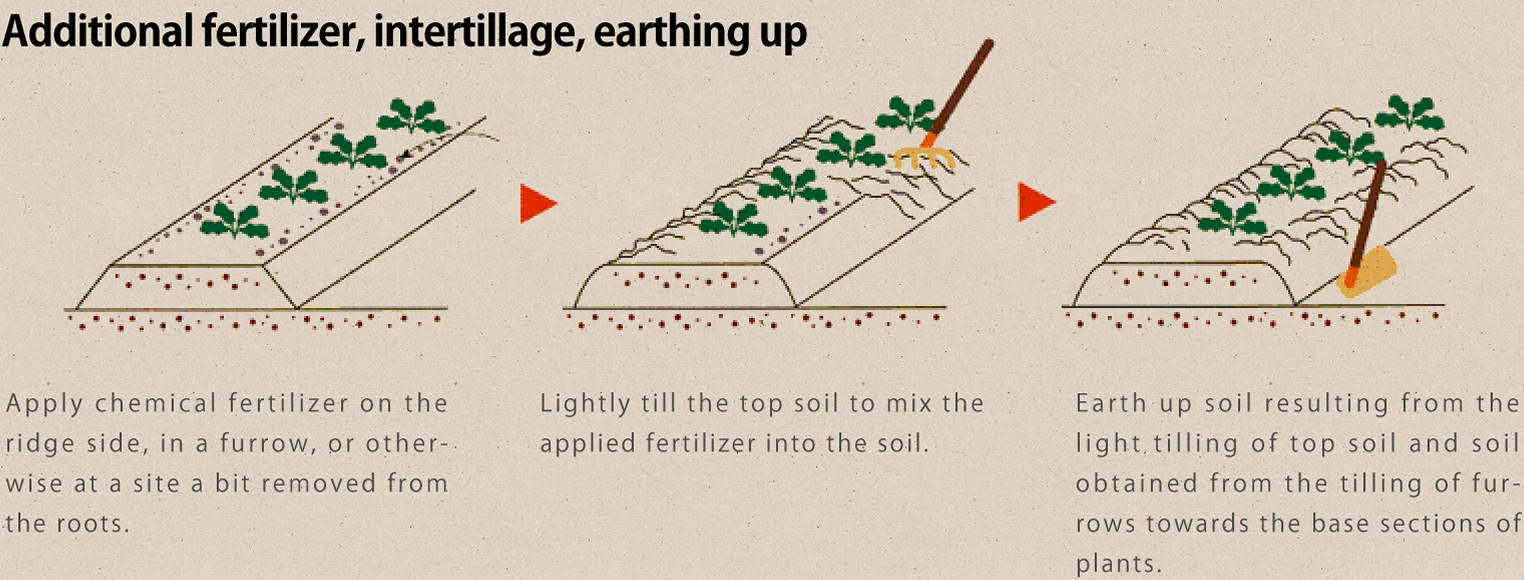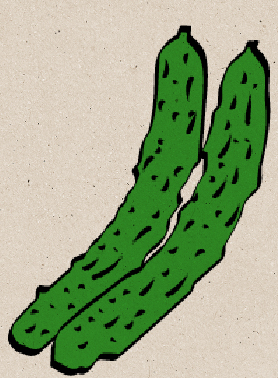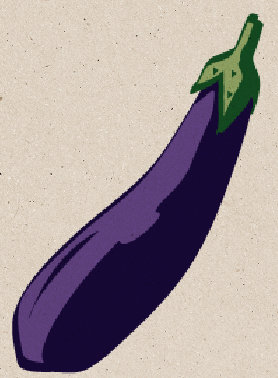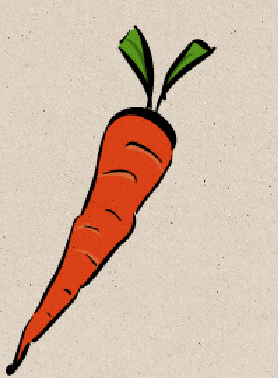
For vegetables with a longer growth period, fertilizer components applied as base fertilizer will be absorbed, washed away in the rain, and ultimately become depleted. In this connection, growth should be promoted by adding fertilizer while keeping an eye on the state of growth. Since fertilizer is absorbed through the tips of the roots, verify that the roots have spread before adding fertilizer to the topsoil around the tips of the roots and mixing it into the soil.
While additional fertilizer can consist of a chemical fertilizer, oil cake, or other fast-acting fertilizer, it should be applied in small doses over multiple sessions (typically about three sessions) since the application of a significant amount of fertilizer at one time may end up damaging the roots.
Properly tilled soft soil can still harden gradually over time due to the impact of rain and other such factors. In this connection, you should lightly till the top soil with a plow or other such implement to loosen and aerate the soil from time to time while taking care to avoid damaging the roots.
With the added benefit of eliminating small weeds, this work is referred to as intertillage. Work to bring soil that has been lightly tilled through intertillage and soil obtained from the tilling of furrows towards the base of a plant is known as ridging or earthing up.
Performing this work stabilizes the roots and improves water drainage.


For cucumbers, tomatoes, eggplants, and other such vegetables produced by plants with vines and an extended height, you should put up stakes and bind them to the plants to ensure even growth.
A single plant with an extended height and plenty of vegetables hanging from branches will be rather heavy. For this reason, stakes should be firmly anchored into the ground and properly reinforced to prevent them from collapsing.
Since vines and stems gradually grow thicker, you should loosely bind your plants to stakes in order to provide room to accommodate greater thickness in the future.
Re-usable plastic ties are great for binding stakes to each other and vegetable plants to stakes.

Add fertilizer about once every 15 to 20 days to prevent fertilizer deficiency.

Sufficiently add fertilizer by applying a thin layer of base fertilizer over the entire surface of the soil.

Since carrots do not grow well in acidic soil, adjust the pH level of the soil using magnesia lime or other such options.